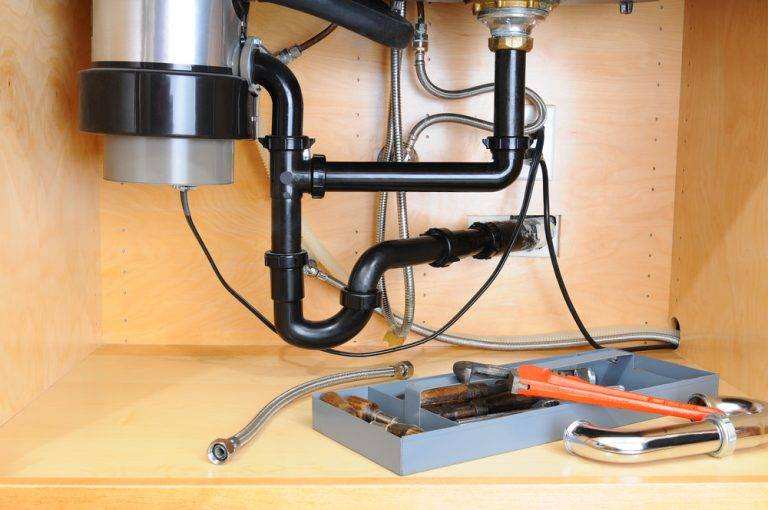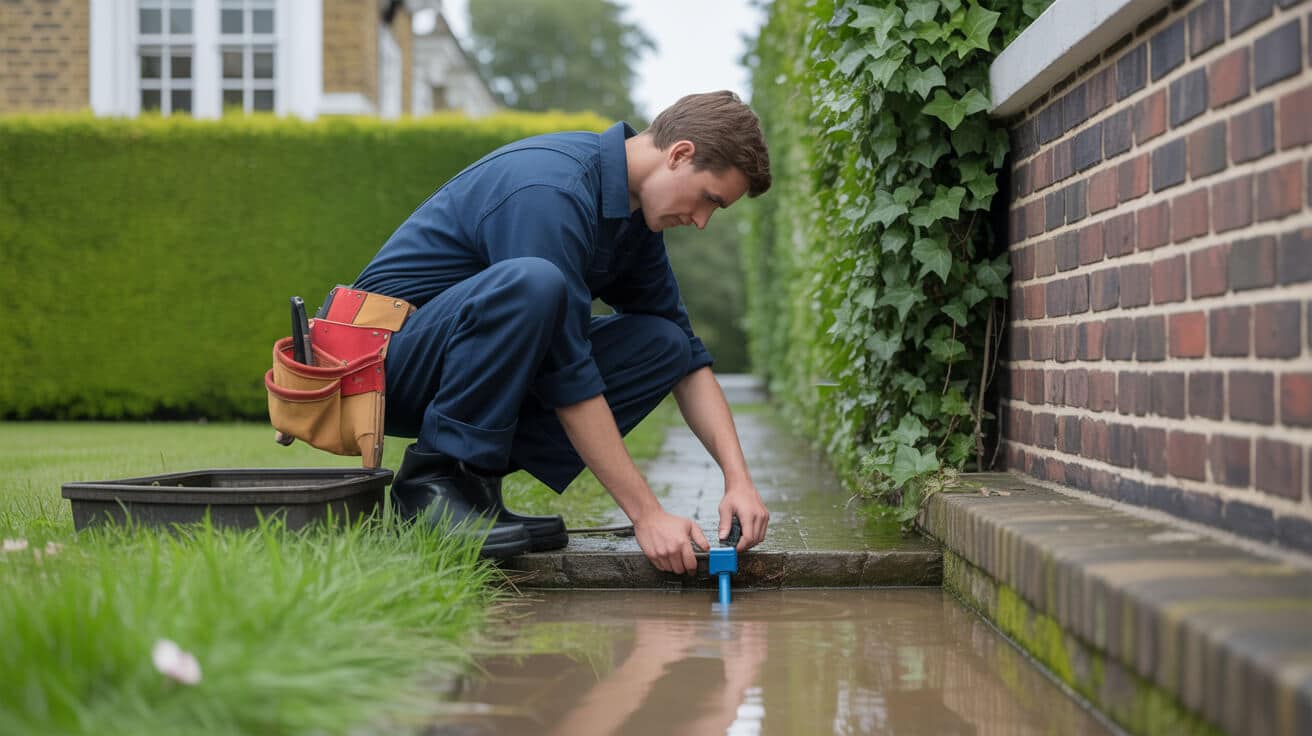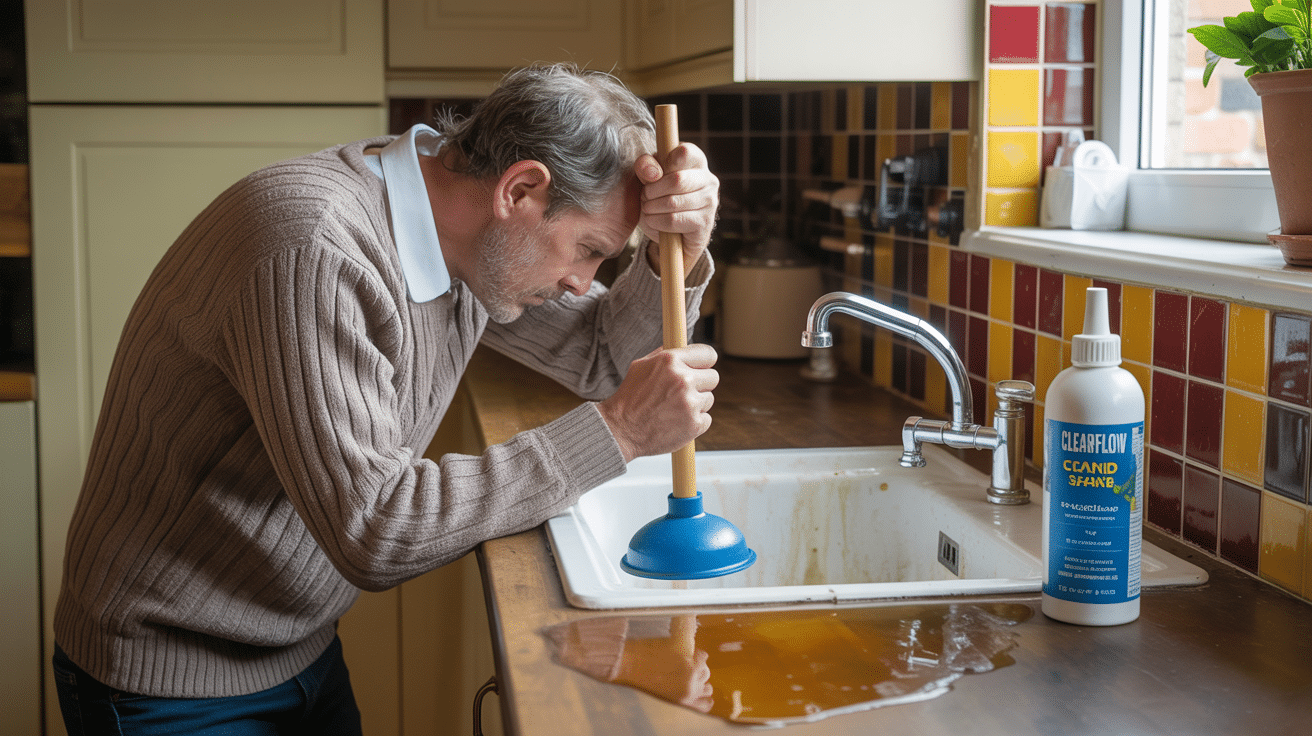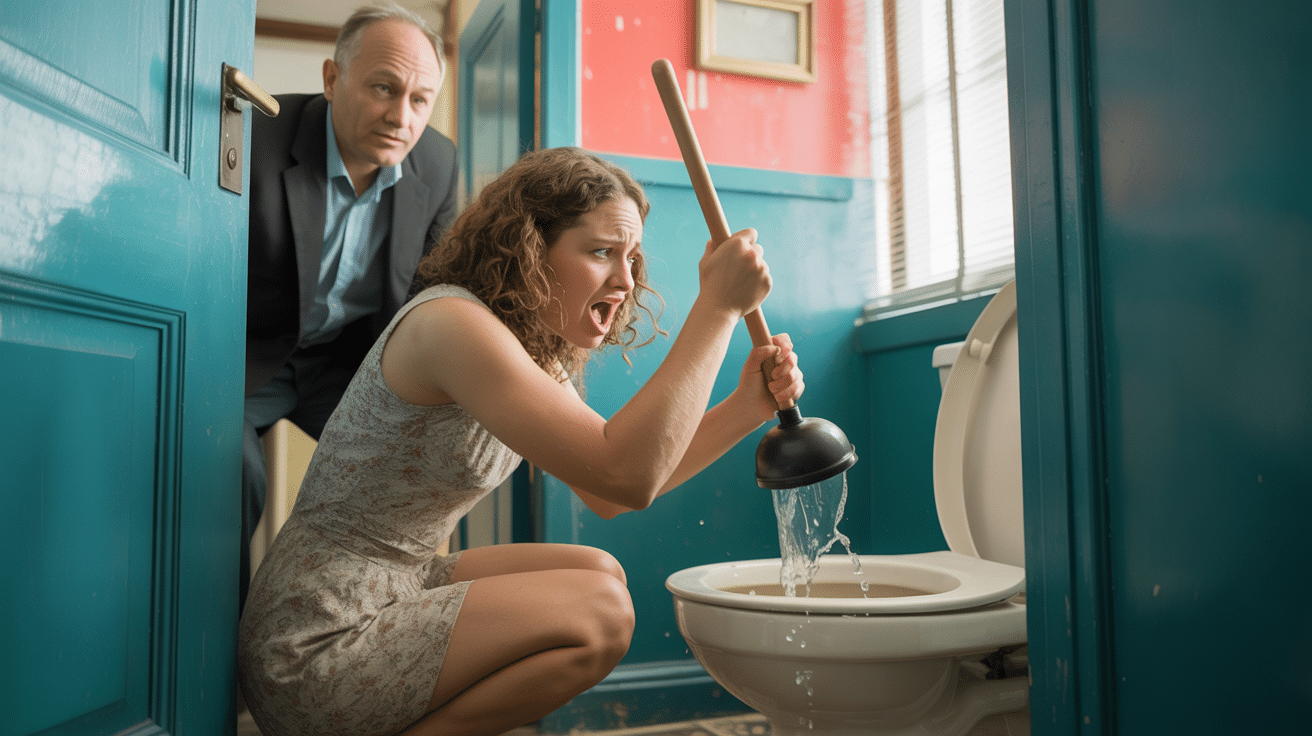 Something Clogging Your Disposal? A Plumber in South East London Can Help
Something Clogging Your Disposal? A Plumber in South East London Can Help

When you are busy cooking – or cleaning up after you have a made a big meal – there is nothing worse than feeding things down the drain into the garbage disposal and suddenly realising that it is clogged. Maybe you have scraped the remains of dinner into it thinking you can quickly turn on the disposal and it will gobble everything down into the drain. In reality, there are a lot of things that should not be put into garbage disposals and until a clog occurs it is not something that we really think about. As you peer into your disposal and contemplate using a spoon to try and push the blockage through or even put your hand in there you may want to reconsider both of those choices. There are some clogs you can take care of yourself but others need to be handled by a professional plumber in South East London or its neighbouring areas like a plumber in SE1 or a plumber in Eltham.
What You Should Never Put in the Disposal
Those whirling blades are nice and sharp and appear to be able to cut through anything but that is simply not the case. Bones, celery, coffee grinds, egg shells, fruit pits, grease, pasta, and fruit peels are the main things that should NEVER be put into a garbage disposal. You might be thinking “But egg shells break down” or “Grease is a liquid” but it comes down to a few factors for why all of these have the potential to clog your drain. Anything that contains a lot of starch like potatoes actually has the ability to swell which can create a giant mess that the disposal is unable to cut through. Celery on the other hand has a variety of strings which are not easily cut. Just think about when you eat celery and how hard it is to chew, and now imagine your disposal trying to do the same. The answer is, it can’t. The strands of celery can wrap around the disposal blades which will effectively work like a spider’s web and it will no longer be able to turn. Grease will harden once it becomes room temperature and bones will also get caught in your sink’s pipes which might mean not only your disposal is blocked but so are your pipes. This means that a relatively easy fix could become a much harder one and thus potentially much more expensive.
Some DIY Tricks to Try
As soon as you hear those whirring blades stop and begin to make a sound that resembles an engine overheating you will know that your disposal is clogged. The first thing you should do is to immediately cut power to the disposal. Once this is done you might think it is a good time to stick your hand in there and feel around. It is never a ‘good’ time to do this. No matter what, you should never put your hand into disposal as the power switch could be malfunctioning and it could turn on unexpectedly and really harm your hand or fingers. Therefore, you should simply grab a flashlight and look down into the disposal to see if you can gauge what is going on. If the blockage is being caused by something that you can see or something you know you dropped down it, like a spoon you can try and retrieve it. You can try and use pliers to grip the part that is sticking out if it will not damage the internal mechanism. If you are unsure about whether not this will damage the internal components of the disposal then now would be the time to call your plumber in South East London. If you cannot see the cause of the clog then you might think using a chemical drain cleaner might be the next way to go. This is not a good option because the corrosive ingredients that work to loosen any drain blockages can actually eat away at the plastic and rubber mechanisms within your pipes and drains.
How to Avoid Clogs
It is always best to simply try and avoid clogs which can be done by watching what you put down your drain but also by simply being mindful of a few other things. If you are going to be peeling potatoes or apples for example, then you should consider putting a strainer over the drain. This will catch anything that could potentially block your disposal or your drain. When you do use your disposal make sure that the tap is running so that water is moving through it with whatever is down there. This will help to push everything through the disposal and flush it through the pipes. Turning on the disposal when no water is running means that the disposal has to try and cut everything up. Then once it has passed the disposal it will simply sit at the top of the pipe until you next run water which can lead to build up and thus a clog. There are also some natural ways to simply maintain your disposal to avoid a clog.
How to Maintain Your Garbage Disposal
Once you have done everything in your power to avoid clogs there are a few things you can do as routine maintenance on your garbage disposal. Disposals can have some bad smells that emanate from them after a while and one of the ways to cut down on the smell, clear out small build-ups which could lead to blockages, and just generally keep your drains clean is to use baking soda. The trick is to do a routine clean of your disposal about once a month. This means using a small brush to clean the blades, and a few tablespoons of baking soda (usually about two) poured down the drain. Once the baking soda is in the drain you can turn on the hot water tap or even pour boiling water through the disposal and the drain to get rid of unwanted build up from any grease that may have congealed. If you are still finding that you have problems with your disposal after doing everything in your power to keep it clean or you have a slip-up and throw something not very disposal-friendly down it, then it is time to call a plumber.
What to Tell Your Plumber in South East London
The time has come to call a plumber. You accidentally put some chicken bones from your delicious roast chicken dinner down your disposal without thinking as you pushed all the other food debris in your sink down the drain. The resounding crunch sound and now the fact that your sink won’t drain has brought you to the inevitable conclusion that your disposal is clogged and you will not be able to fix it yourself. Enter your trusted professional plumber who is available any day of the week, at any time, rain or shine. When you call your plumber, even if it is slightly embarrassing, you should tell them what was put down the drain so that they can have an idea of what they are dealing with and to know if they need to bring any specialized tools to see into the drain. Once on-site, your plumber will be able to quickly ascertain what exactly has gone wrong and get to work on unclogging that disposal. This could mean taking apart the disposal to remove the reason for the clog or the junction between the drain and the pipe. Simply put, these are things that only a certified plumber can do and not something you want to try yourself as it could create some real problems if your DIY plumbing goes awry.
How to Find a Professional Plumber
If you don’t have a plumber in your contacts then you may find yourself at a loss for where to find one that you can trust and who won’t overcharge you for their services. The key is to find one that will be available for emergencies so that you are not left with a clogged sink for days on end. Usually, a professional plumber or plumbing service will be available for a call-out within a 30-minute time period if it is an emergency. They understand that it can happen at any time of the day, and any time of the week. Plumbing emergencies do not care about holidays either. Due to this, you will want to make sure the plumber you call is one that will be there for you in your time of need. Just because it is a Sunday night after a big family dinner, and your uncle put six sets of eggshells down the sink and you have to work all week so won’t be there to let a plumber in may not seem like an emergency to an outsider, for you it is. A professional plumber will answer your call and get everything working in a short amount of time.
Just remember, avoid a clog if you can by being savvy about what goes into your disposal but accidents happen so your local professional plumber is there for you when you need them.



